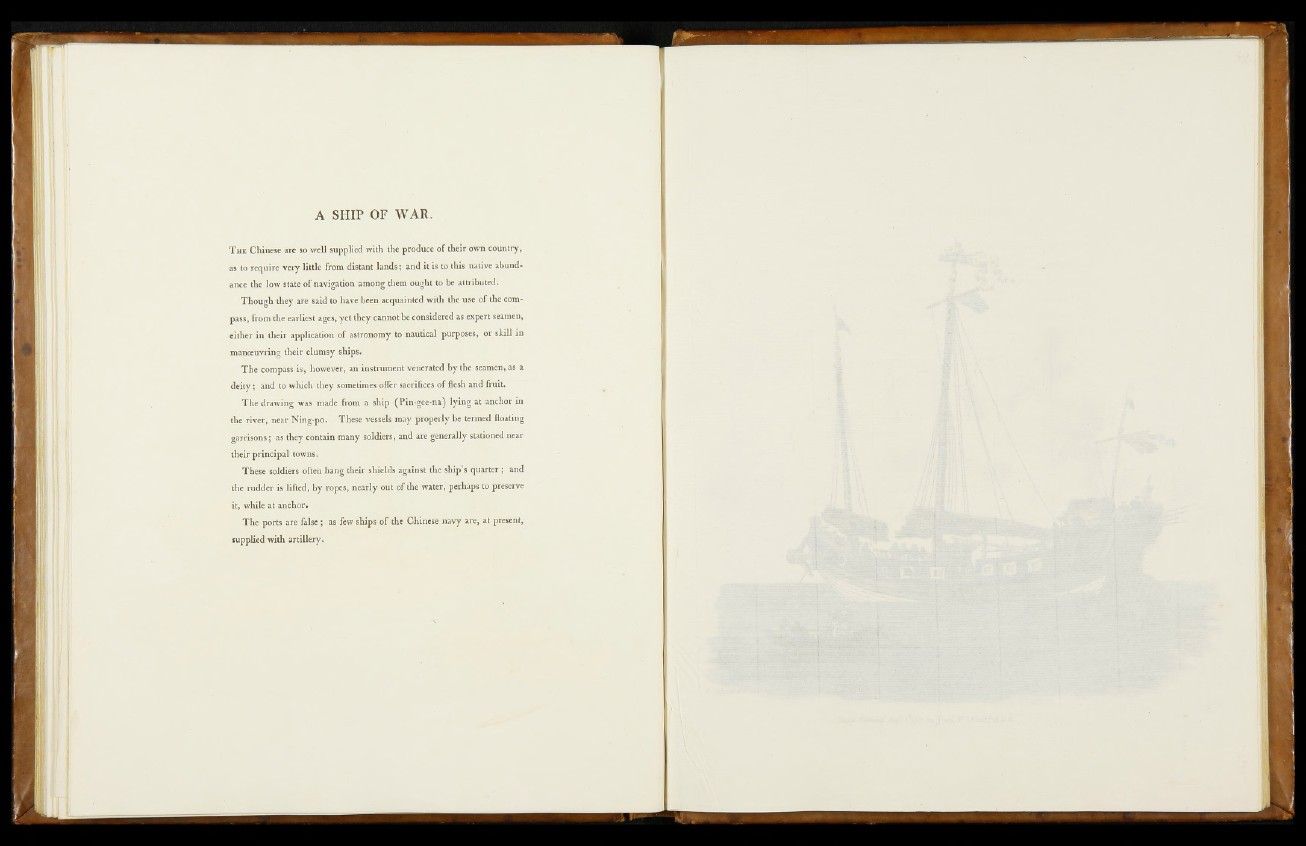
A SHIP OF WAR.
T he Ch in e se are so well su p p lie d with th e p ro d u c e o f th e ir own co u n try ,
as to re q u ire v e ry little from d ista n t la n d s ; an d it is to th is native a b u n d ance
the low state o f nav ig a tio n amo n g them o u g h t to be a ttrib u ted .
T h o u g h th ey are said to hav e been acq u ain ted w ith th e u se o f the comp
ass, from the ea rliest ages, y e t th e y cannot be considered as expert seamen,
e ith e r in th e ir a p p lic a tio n o f a stro n om y to n au tica l p urpose s, o r sk ill in
manoeuvring th e ir clum sy sh ip s.
T h e compass is , however, an in s trum e n t venerated b y th e seamen, as a
d e i ty ; an d to w h ich th e y sometimes offer sacrifices o f flesh an d fru it.
T h e d raw in g was made from a ship (P in -g e e -n a ) ly in g at a n c h o r in
the riv e r, n ea r N in g -p o . T h e se vessels m a y p ro p e rly be termed floating
g a r ris o n s ; as th e y co n ta in m an y soldiers, an d are g en e ra lly stationed n ea r
th e ir p rin c ip a l towns.
T h e se soldiers often h an g th e ir shields ag a in st th e sh ip ’s q u a rte r ; and
th e ru d d e r is lifted , b y ro p e s, n e a rly o u t o f the water, perh ap s to preserve
it, w h ile a t an c h o r.
T h e po rts are false ; as few sh ip s o f the Ch in e se n av y are, a t pre sent,
supplied w ith a r tille ry .